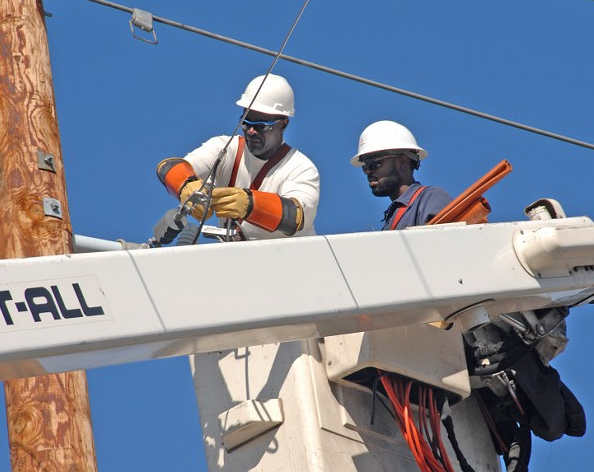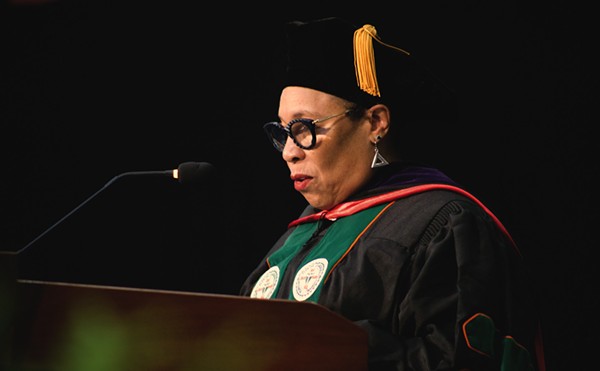City of Cleveland Appeals to Ohio Supreme Court to Stop Possible $188 Million Class Action Lawsuit Against Cleveland Public Power
By Vince Grzegorek on Wed, Mar 10, 2021 at 1:21 pm
[
{
"name": "Ad - NativeInline - Injected",
"component": "38482495",
"insertPoint": "3",
"requiredCountToDisplay": "5"
},{
"name": "Real 1 Player (r2) - Inline",
"component": "38482494",
"insertPoint": "2/3",
"requiredCountToDisplay": "9"
}
]
The city of Cleveland has filed an appeal asking the state's high court to overrule an appeals court that ruled late last year that a possible class action lawsuit against Cleveland Public Power alleging that the city-owned utility improperly charged customers $188 million could proceed.
In ruling that the lawsuit could go on, the 8th District Court of Appeals kicked the case back to Cuyahoga County Common Pleas Court, where a judge had originally dismissed it in 2019. Cleveland wants the Ohio Supreme Court to decide.
At the heart of the issue is whether that $188 million CPP passed along to customers over 30 years was proper, or whether, as the plaintiffs allege, CPP was only permitted by local ordinance (§ 523.17) to recover costs necessary to comply with environmental laws and instead used the "environmental and ecological adjustment" charge to generate much-needed cash without hewing to any guidelines other than its bottom line and without disclosing details to customers.
As former utilities director Paul Bender told reporters in 2015 when the lawsuit was first filed, these fees are illegal and dupe even the most watchful consumers, bondholders and rating agencies, and they were kept in place so that base electric rates could stay low and CPP could remain competitive with private behemoth FirstEnergy. The city stopped charging the fee for a time following the legal action but resumed the practice in 2017.
In a memorandum filed on Jan. 7, the city argued the Ohio Supreme Court should take up the case because it's "of public and great general interest and concerns municipal corporations’ utility power," saying that the costs passed on to customers were allowed under Cleveland ordinance permitting CPP to "recover a portion of the costs it incurred for purchase and installation of power supply apparatus necessitated by its growth."
"In this case, Plaintiffs put forth a novel interpretation of § 523.17, alleging it only allows for special costs required for complying with environmental laws, a limitation not found in the ordinance," the city's lawyers argued. Additionally, it says customers suffered no damages since if the ordinance didn't permit it to recover costs, it would have simply charged a higher rate necessary to recoup the money. (Defendants argue, convincingly, that the higher rate would have made CPP uncompetitive in the market.)
The 8th District disagreed last year, noting in its ruling that the ordinance, which was written in the 1970s specifically to address environmental concerns, is not a free slate for the utility to do what it wants.
In a response memorandum filed with the Ohio Supreme Court on Feb. 8, the plaintiffs leaned on the strength of the appeal court decision and repeated the claims that led the court to rule in their favor.
"A local ordinance permits the City’s municipal utility, Cleveland Public Power, to adjust customers’ bills to pass-through special environmental-protection costs," it reads in part. "CPP never incurred any such costs, but secretly used the ordinance to increase its revenues. The Eighth District correctly found CPP’s scheme improper and remanded the case for a factual determination as to whether CPP’s charges to customers were reasonable. It would be premature and inappropriate for this Court to accept jurisdiction."
"The City would have this Court sever the second part of the ordinance and then expand it into a full-blown capital-asset recovery vehicle through which nearly the entirety of CPP’s budget could be funneled. This cannot possibly have been the intent of City Council, and there is no language in the ordinance to that effect," it continues. "To the contrary, the 'costs' enumerated in the second section refer to the “costs” defined in the first section—those related to environmental protection. Thus, although the second section lists 'power supply apparatus' as a recoverable cost, the first section limits the types of power supply apparatus recoverable by way of an environmental adjustment to those which are for environmental compliance."
The Ohio Supreme Court has not ruled on whether to take the case.
SCENE Supporters make it possible to tell the Cleveland stories you won’t find elsewhere.
Become a supporter today.
About The Author
Vince Grzegorek
Vince Grzegorek has been with Scene since 2007 and editor-in-chief since 2012. He previously worked at Discount Drug Mart and Texas Roadhouse.
Scroll to read more Cleveland News articles
Newsletters
Join Cleveland Scene Newsletters
Subscribe now to get the latest news delivered right to your inbox.














